|
We did something amazing at the end of January. For years now Gerald has been telling us how he is freinds with the acclaimed stage actor. Mark Rylance. Obviously we didn't quite believe him and so we referred to him as 'Gerald's Imaginary Friend' and much teasing ensued for many months. He even claimed to have met him and to have had an email exchange where encouragement was apparently forthcoming and we were hoping, perhaps only dreaming, that Mark would agree to being our Patron. Eventually one of the emails requesting his patronage of the company netted the result "I thought I already was". The teasing was over. Mark Rylance is real and Gerald knows him. We were elated when Mark invited us up to London, to the Harold Pinter Theatre, to perform Little Cuts in one of the bars at the theatre for him. He also generously paid for us all to watch him perform later that evening in Nice Fish. January 23rd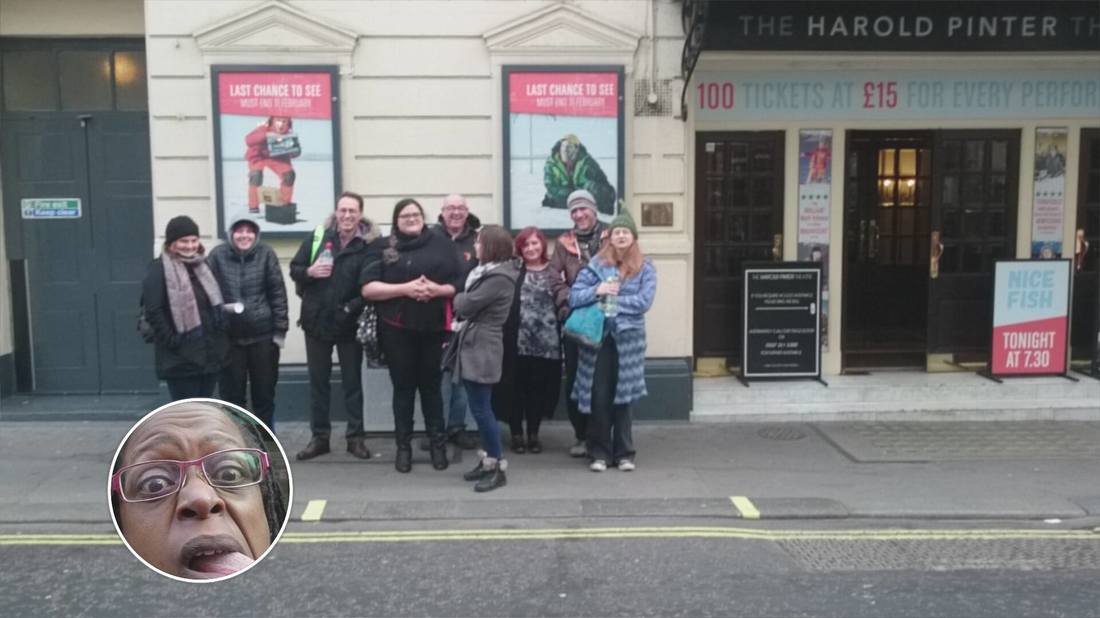 Show time We did it: the end of the play We take our bow and thank our musician A quick meal before the main eventNice Fish Nice Fish was incredible. We cannot do justice to it here but it was surreal, beautiful, really funny and heart-touchingly poignant. The effects were fantastic and very clever and all of the performances were beyond brilliant. Having just talked to Mark, and seen how kind, self-deprecating and genuine he was, to see him in his element was breath taking and inspirational. It's moved to New York now as it was near the end of its run when we saw it but if there is anyway you can see it? Do. I cannot recommend it enough. "Not so imaginary now, huh?"
0 Comments
We were contacted by Kimberly Woodcock, founder of 'Spirit of the Old Town' to see if we were interested in contributing to the Halloween Ghost Walk in Hemel Hempstead. Kim had seen our performance of Blue Pixie at the LP Cafe and wanted to work with us. That years theme of the Halloween walk was to be "Asylum". Given our ethos of educating about mental health issues and challenging the stigma around it, we were conscious that we didn't want to be presenting the cliched and damaging stereotype of dangerous escaped lunatics as 'entertainment'. Mental Illness is so often perceived as something very taboo leading to shame and denial about what is actually remarkably common (one in four of us in any given year). Kimberley was also concerned about this and assured us at the earliest opportunity that she wasn't expecting us to parade mental illness around as titillation. Having looked a little into the history of responses to mental health needs in the UK, we were aware that both medical and psychiatric treatments have come along way. Historically, asylums were the stuff of nightmares. A selection of reasons for incarceration included the following: Immoral Life, Jealousy and Religion, Laziness, Masturbation, Venereal disease, Novel reading, Opium Habit, Over Action of the mind, Over study of religion, Parents were cousins, Tobacco, Political excitement, Asthma, Bad company, Periodical fits, Business nerves, Death of sons in war, Self-abuse, Desertion by husband, Suppression of menses, Vicious vices, Woman trouble, Superstition, Small pox, Spinal Irritation, Greediness, Grief, Salvation Army, Seduction and disappointment, Sexual derangement, Feebleness of intellect. The treatments changed over the years, but have included: forced lobotomy (incision into the prefrontal lobe of the brain, accessed via the eye socket. The resulting brain damage was catastrophic to personality and intellect), ice water treatments, chains and manacles as physical restraint, “moral talks”, management’ techniques developed by Renaissance "horsemasters" to control stubborn horses and enforced physical activity. And that’s not even taking instances of illicit abuse by staff into account, just some of which has been widely reported. When we looked into what 'asylum' meant we had a few basic ideas. Safety. Sanctuary. What was so striking was how much these were anathema to the treatment received by those in historical asylums. For our characters, asylum comes only in the escape from such an institution. We needed asylum from the Asylum. I would like to add that the current political connotations of asylum, the plight of asylum seekers, was not ignored but, as our current membership consists entirely of those born with British citizenship, we did not have the insight into such stories. We decided to focus on stories closer to our own. But by looking at the experiences of any one group asking for help to survive impossibly dangerous and unfair situation in which they find themselves, hopefully we can encourage audiences to consider: "What if that were me, or someone I loved?" Hopefully being moved enough to resolve to help, where they can, and become an asylum, in themselves for those who need it. We took our name from the local Metropolitan Asylum for Chronic Imbeciles, latterly Leavesden Hospital, local to one of our members. We took ourselves over to Hemel Old Town several times to rehearse in situ. The sunniness of the days often in contrast to our bleak subject matter, a lot of fun was had. Halloween Night On the day, we were made most welcome by the regular ghost walk performers and got our makeup done The "lunatics" have found brief respite, hidden amongst the curious onlookers. |
| | At times it felt like some of the feedback we were getting was harsh and that our aim had been misunderstood. The general criticism went something like this..... "Here is my job title. I am providing this to prove that what I say carries weight because I am a professional. I am marking my territory. I am a good and kind person because I work with the mentally ill. What you are doing and saying is threatening to me because I like to feel in control of the situation when I work with the mentally ill. I am doing help and kindness to them and they should be grateful. I think you should not take alarming subject matter into schools as this has not been done before and it is alarming to me." Perhaps they didn't appreciate the fact that we work from lived experience and therefore are experts in the subject matter' Apparently there are many professional actors who wouldn't even try to receive feedback face to face like that. It is a difficult thing to do. We got dire warnings, that we believe came more from the speakers' fears than their desire to help us make a better piece. The helpful feedback about pacing and technique? That was expected and we are very grateful that people took the time and effort to come and see us. It was, we thought, clearly spelled out that the work was "in progress" and that the workshop that we would give in schools after the performance would be ready to address questions and issues raised. But it feels like some "professionals" were too threatened by us and our message to want others to see it. We think practically everybody should see Little Cuts. Show us someone working in Mental Health who wouldn't benefit from the insights this piece gives. Show us a teacher who knows so much about self harm and its manifestations that Little Cuts has nothing for them. Show us an adolescent who self harms who isn't already struggling with the feelings of either isolation, shame, confusion or helplessness that we're trying to address. Show us an adolescent, who doesn't self harm, who is already so well informed that they adequately understand what those who do self harm are going through, and how to help. We're not suggesting that mental illness always equates to self harm but please consider the following. People with current mental health problems are 20 times more likely to report having harmed themselves. 1 in 4 of the population will experience some kind of mental health problem in the course on any given year. In children (between the age of one and fifteen) 1 in 10 has a "mental health disorder". 1 in 5 will experience some kind of mental health problem in the course of any given year. 1 in 10 at any time, will be experiencing mental health problems. Unsurprisingly, "rates of mental health problems among children increase as they reach adolescence". Assuming that we perform to a class of thirty, that means that, statistically, at least 3 students will be struggling on that day. We understand the urge to protect adolescents who have no experience of self harm, but we would argue that, realistically, there aren't as many of them as you would think and such ignorance is likely to be short lived, especially with internet access so ubiquitous. Surely it is better to try to reduce the stigma, open the discussion and begin to explore the alternatives, than to try to protect some ideal of innocence that, sadly, cannot last. In case you are wondering 'how many of them will have self harmed though?' According to one Guardian article, last year the Health Behaviour in School-Aged Children (HBSC) revealed that "of the 6,000 young people aged 11, 13 and 15 surveyed across England – up to one in five 15-year-olds say they self-harm." Admittedly, it was a difficult experience for us on a number of levels. It apparently led some to question the wisdom of subjecting "vulnerable adults" (ie. us) to such "robust" feedback. Yes, much as we'd like not to be, we are vulnerable adults. But we are not helpless. We have been through hell and we are damn well going to do everything in our power to prevent others doing so, and to help those who already are. We will fight the ignorance and stigma that has made our experiences so much worse. We raise the profile of mental health problems because the current awareness levels are absurd. A person is more likely to suffer from mental illness in this year than they are to experience the following in their lifetime:
Right now, 1 in 5 of us will have dandruff. 1 in 5 of us have arthritis. 1 in 11 children and 1 in 12 adults have asthma and 1 in 10 carry meningococcal bacteria (although only 1 in 33,333 will have meningitus in any given year). These are common, everyday afflictions that nobody is trying to deny. But any given person is more likely to experience mental illness this year than be currently coping with asthma, arthritis or dandruff. It's here. It's real. It's horrible and we are going to talk about it because the more you shut it away the more the sufferers suffer. We can't sit quietly and patiently and wait for overworked, underpaid NHS staff to come and tell us how to address the issues nicely. We're not going to talk quietly any more just because it makes the "sane" people more comfortable. We are going to shout and we are going to be heard. Further Reading ;) http://www.theguardian.com/commentisfree/2010/apr/24/one-in-four-mental-health-statistic Some very good points. Ours still stand. :p |
Photo's not taken during performance but on the days of the performance. Varied levels of costumes/make up reflect this. Terms and conditions apply, No, wait, ignore that last bit.
Last Friday we were again guests at Ttrestle Theatre to work with Emily on our mask scenes. It was exhausting but really rewarding and useful we did some really good work.
We’re really gearing up for the scratch performances. We would really like to have the main part of our audience at the 2pm performance Trestle, St Albans on Friday 18th September, we are also performing in the much smaller space available at Colne House, Watford, on Tuesday 15th September (also at 2pm). For those who are unaware a scratch performance is not the final polished play that the company is aiming for. This performance is to give interested parties an idea of where we are going with the piece and is an opportunity to receive feedback to ensure that Little Cuts will be the best it can be so we can reach the widest audience.
As we’re taking this piece into schools we especially want anyone with a secondary school connection to come and see the performance. The company believe in this project passionately and many of us have remarked what a difference it would have made had we seen such a performance during our time at school. What a difference it would have made to be able to have an open discussion about what is a stigmatised and isolating experience.
Many schools would prefer not to admit that any of their students could be experiencing any kind of mental health issues but the truth is that some of them do. The statistics are becoming more prominent in the public consciousness. 1 in 4 people will experience mental ill health in any given year. The stigma that prevents open discussion makes the problem worse. We’re trying to make it better, with a little humour along the way.
As we’re taking this piece into schools we especially want anyone with a secondary school connection to come and see the performance. The company believe in this project passionately and many of us have remarked what a difference it would have made had we seen such a performance during our time at school. What a difference it would have made to be able to have an open discussion about what is a stigmatised and isolating experience.
Many schools would prefer not to admit that any of their students could be experiencing any kind of mental health issues but the truth is that some of them do. The statistics are becoming more prominent in the public consciousness. 1 in 4 people will experience mental ill health in any given year. The stigma that prevents open discussion makes the problem worse. We’re trying to make it better, with a little humour along the way.
|
'Nuts had been asked to contribute to BBC Three Counties Radio's ProgrammeShrink Wrapped. The episode due to be aired on the 19th April at 1 pm, The Art of Recovery, is focused on how the arts can be used to 'get better'.
|
On Thursday Kevin Smith headed off to Luton to give an interview for Three Counties Radio.
1 pm
|
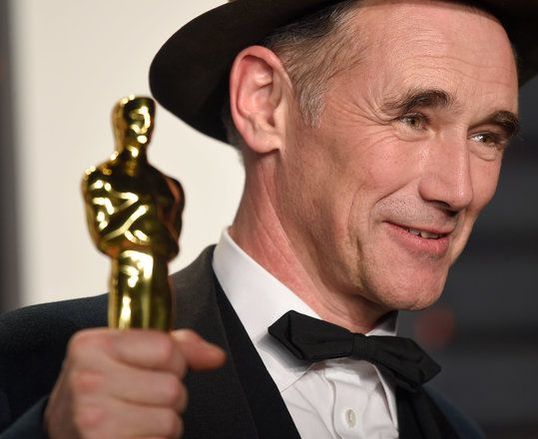
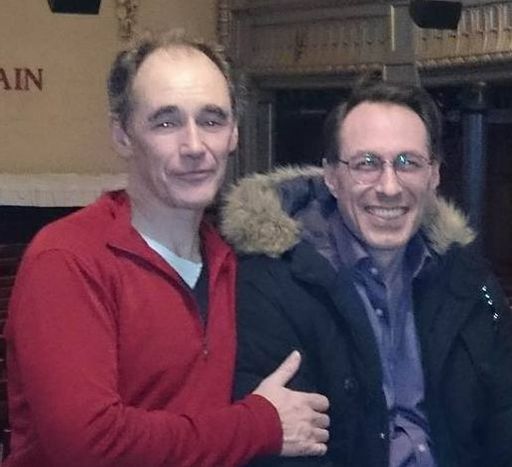
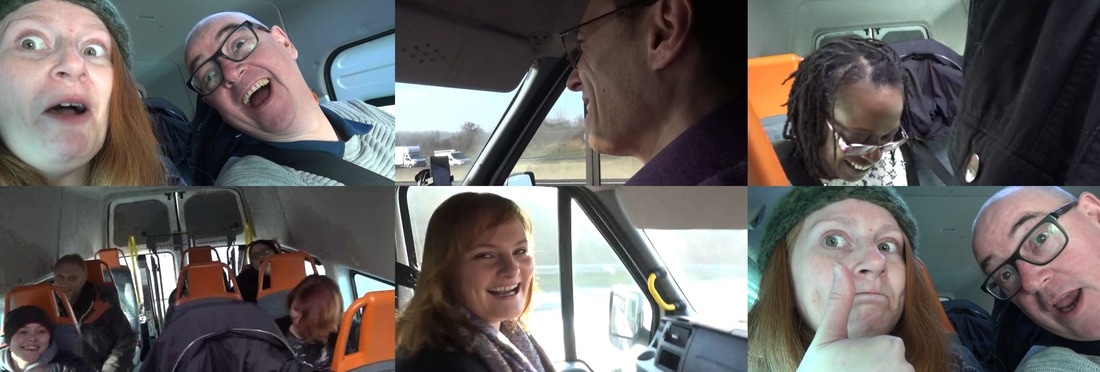
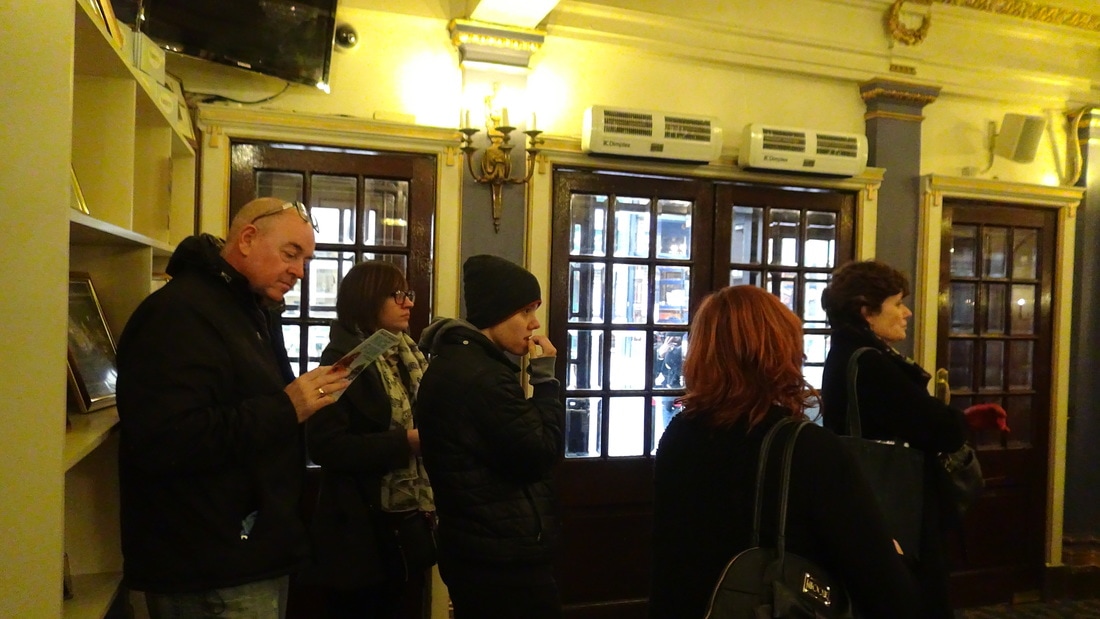
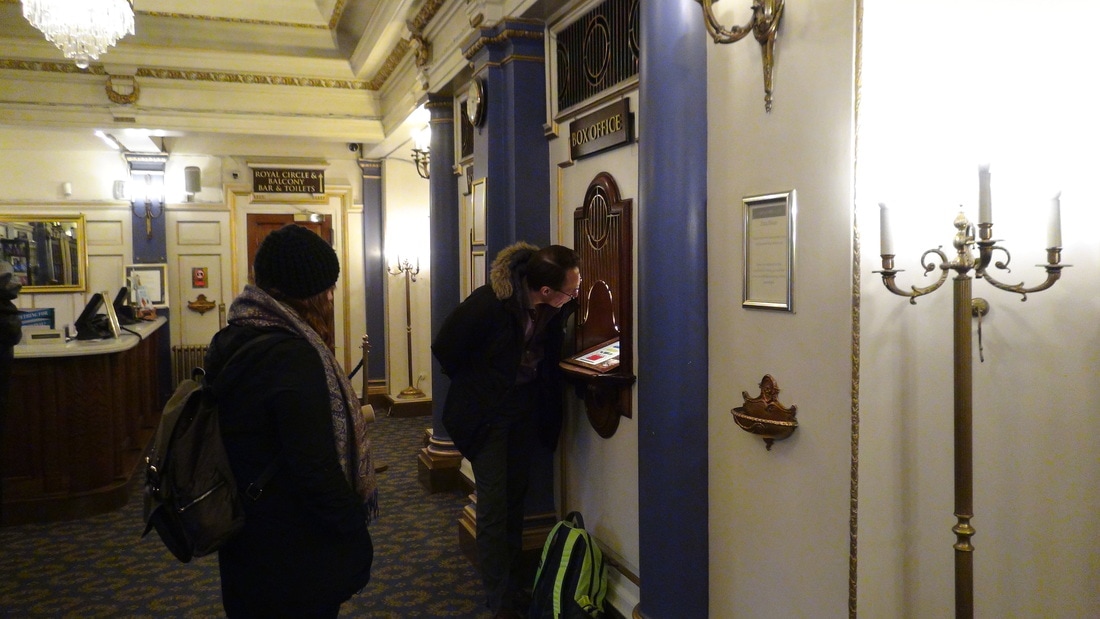
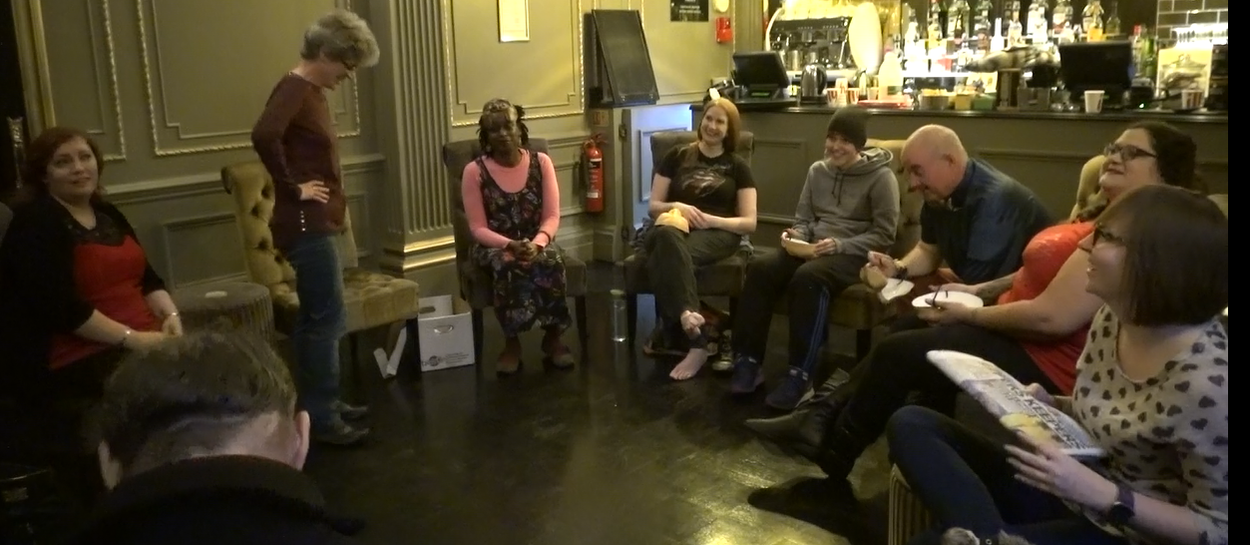
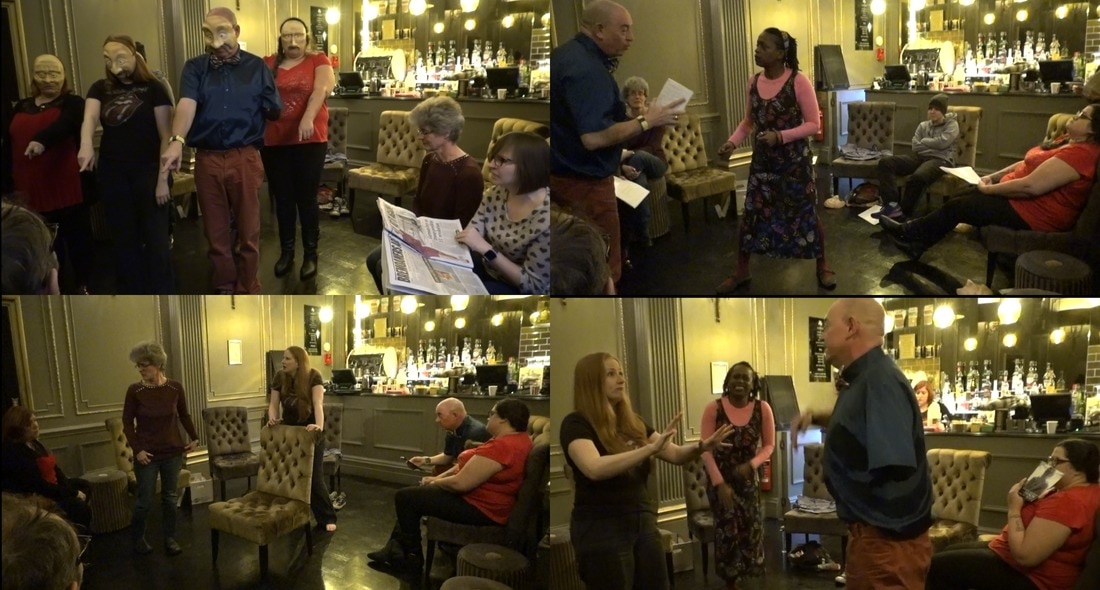
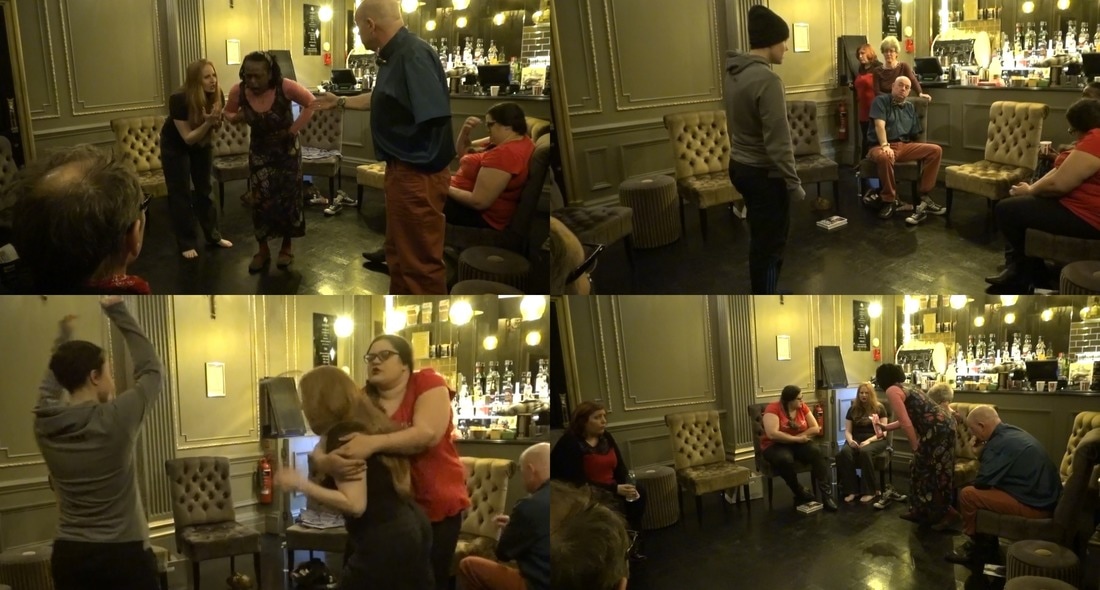
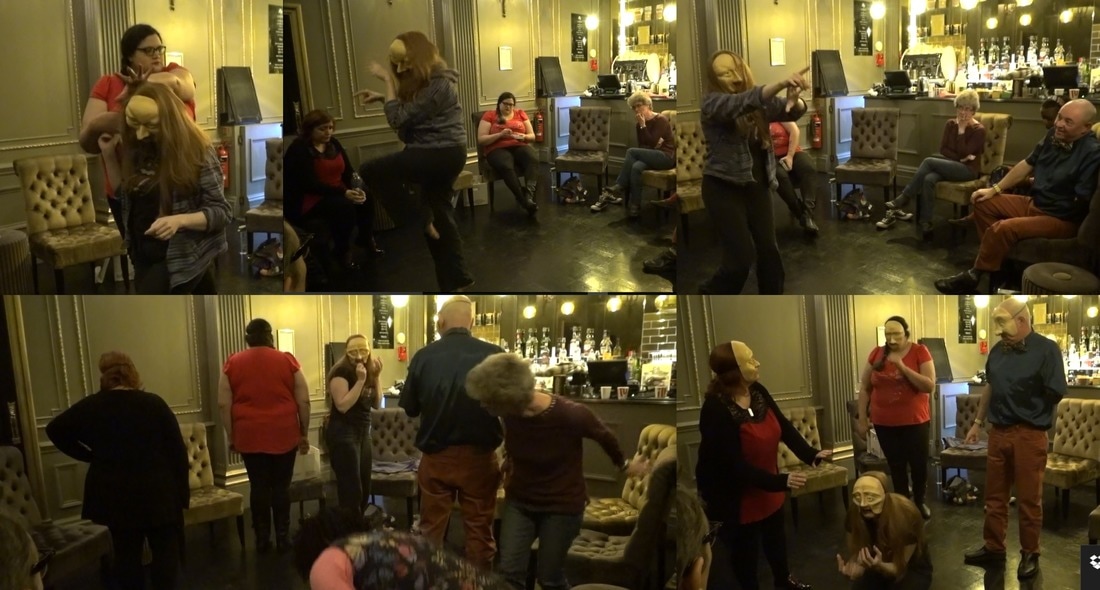
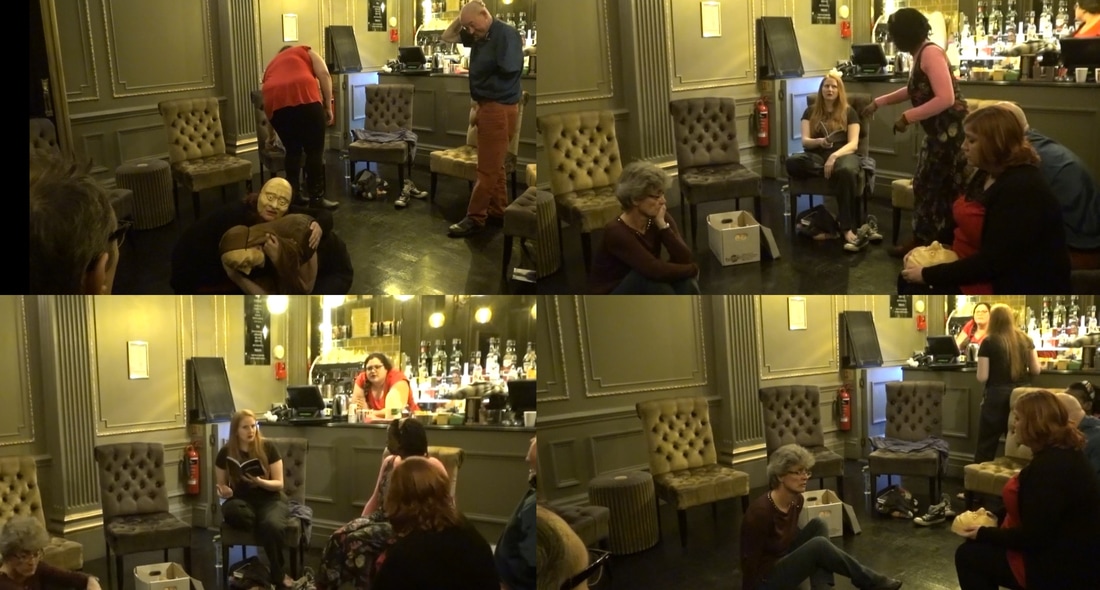
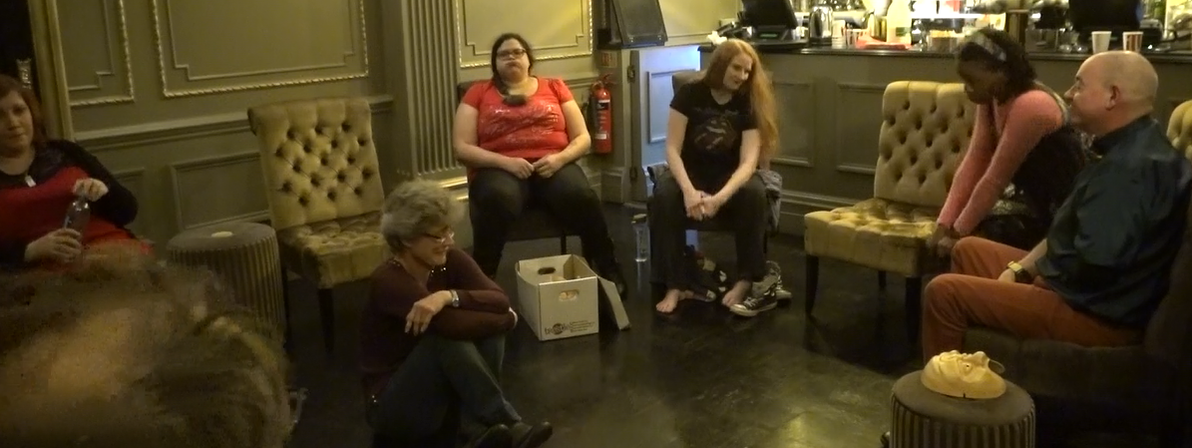

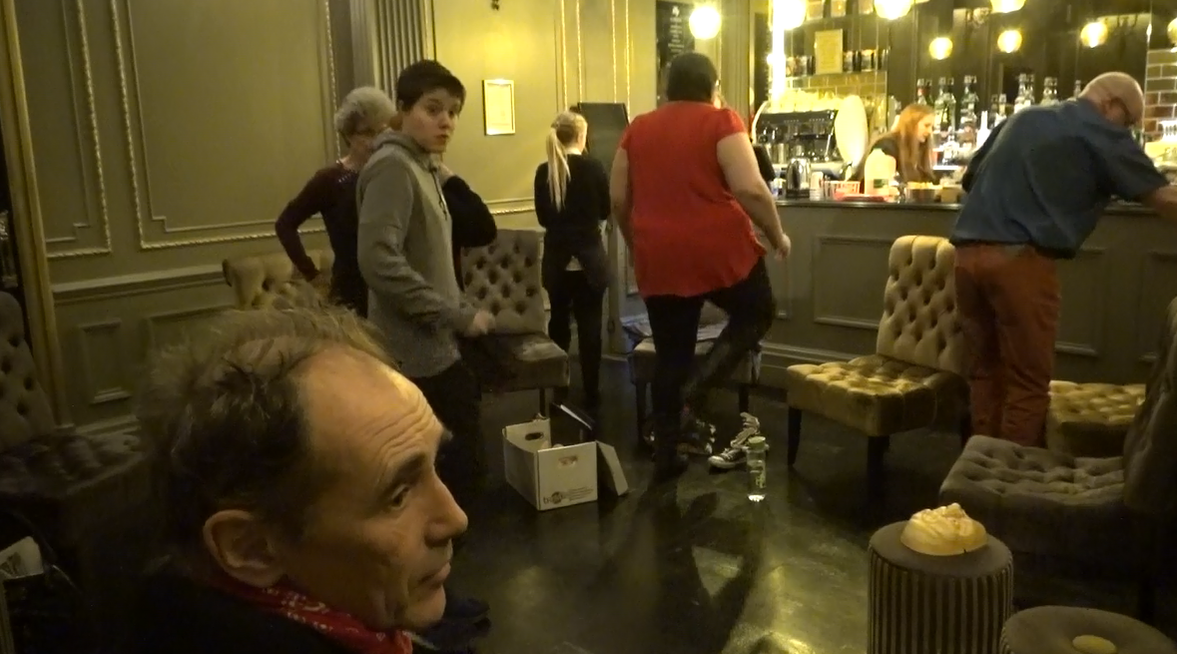
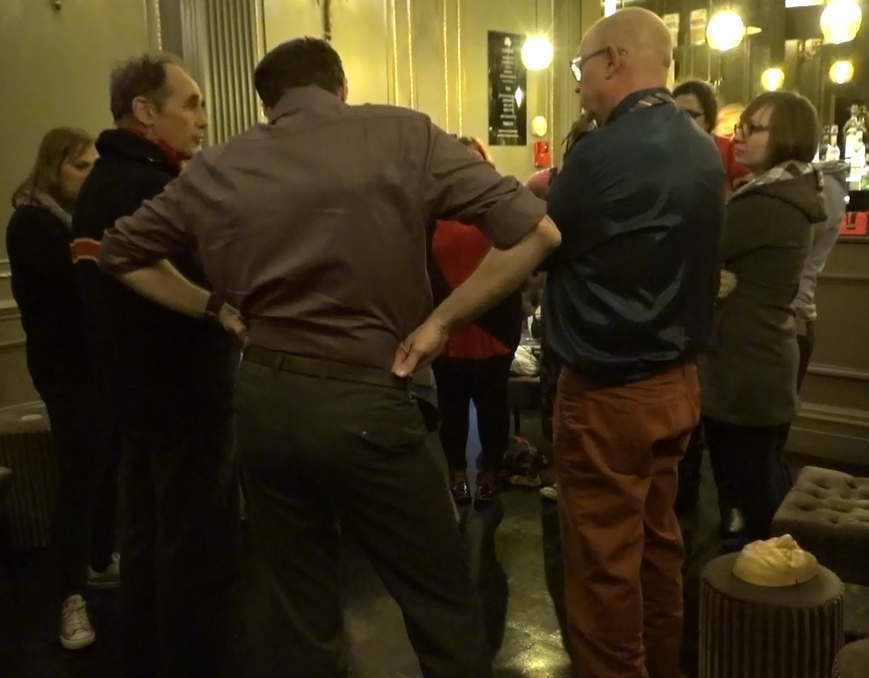
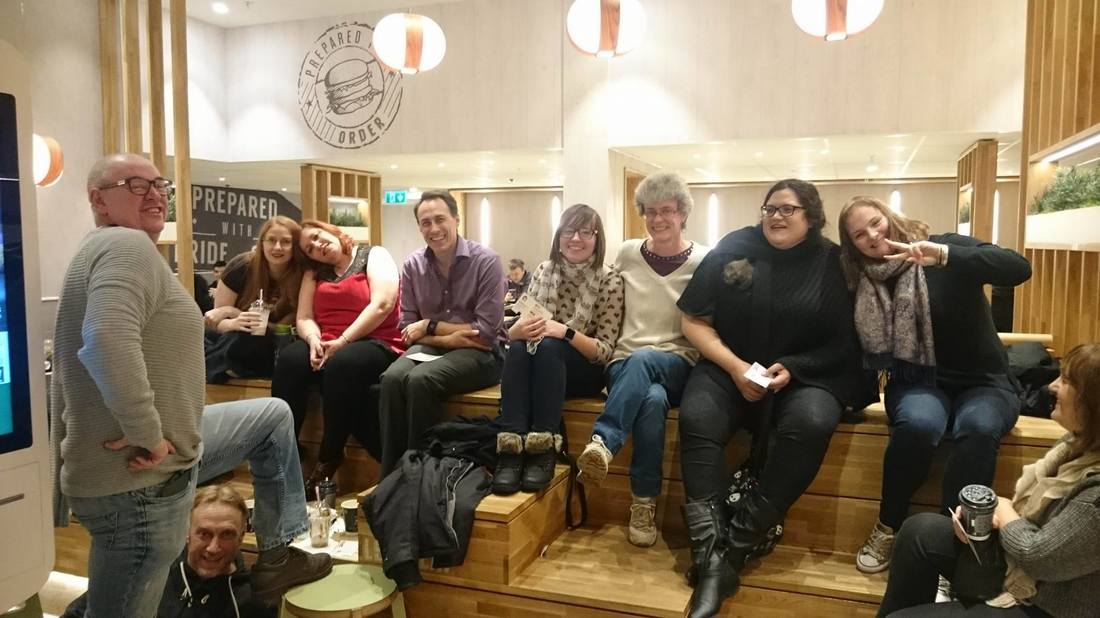
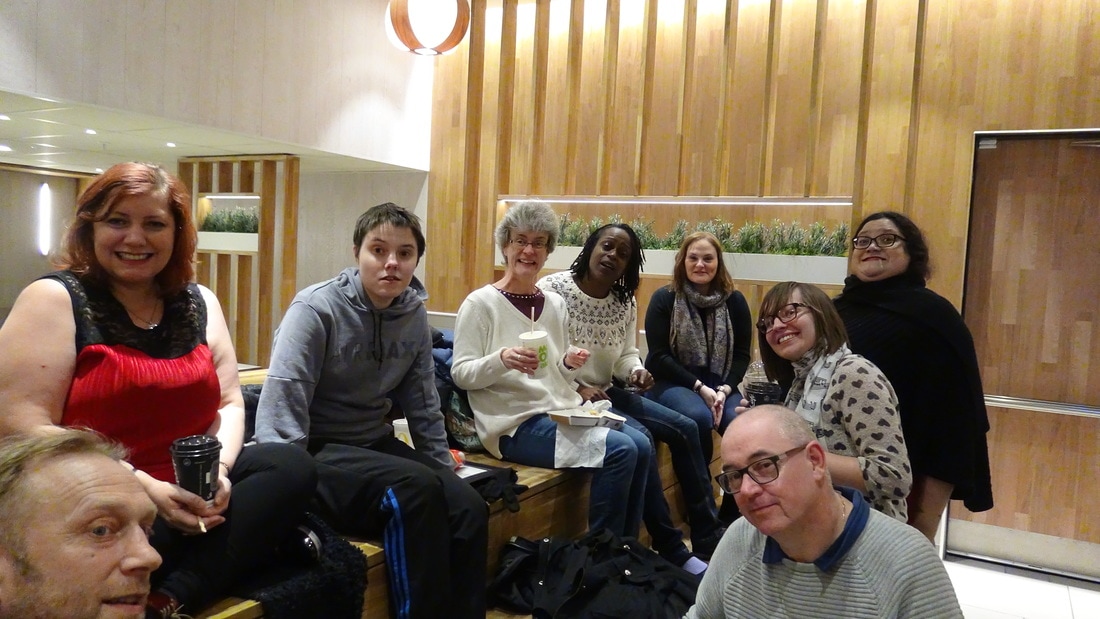
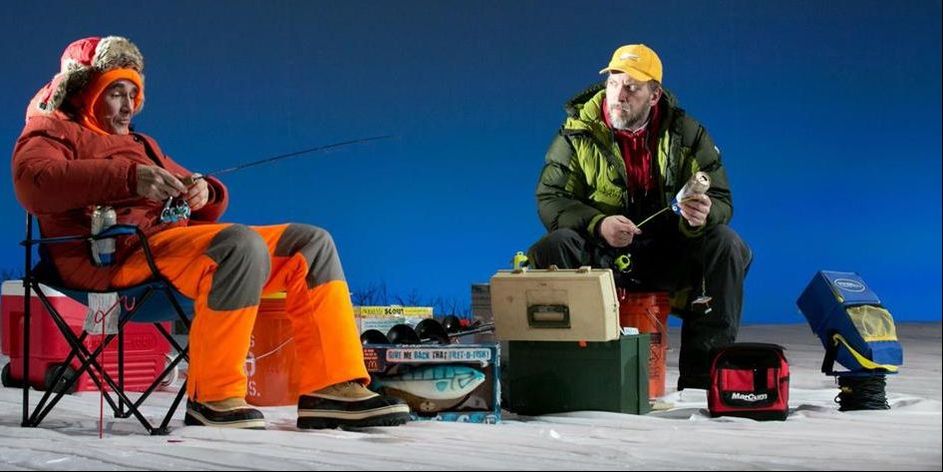
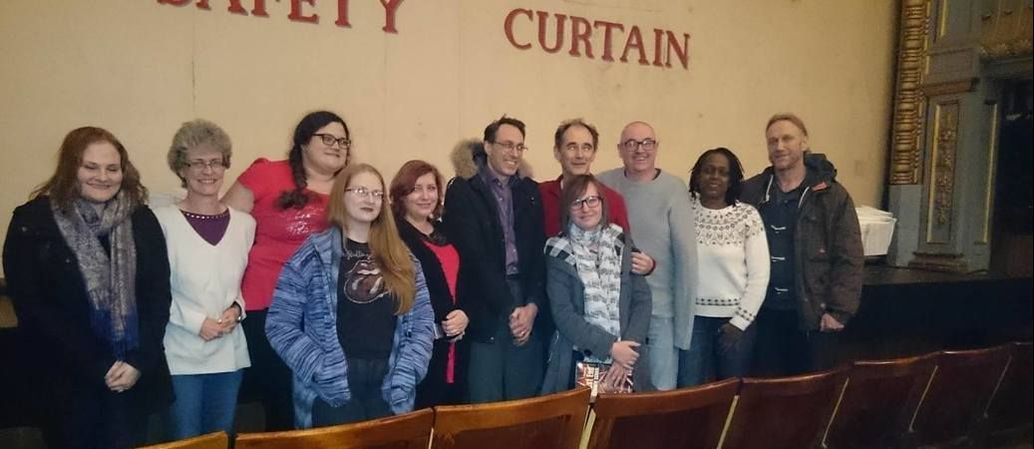
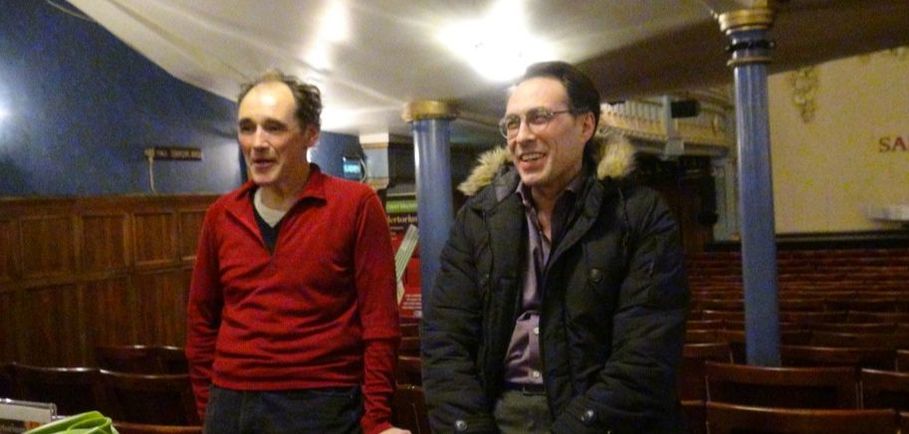
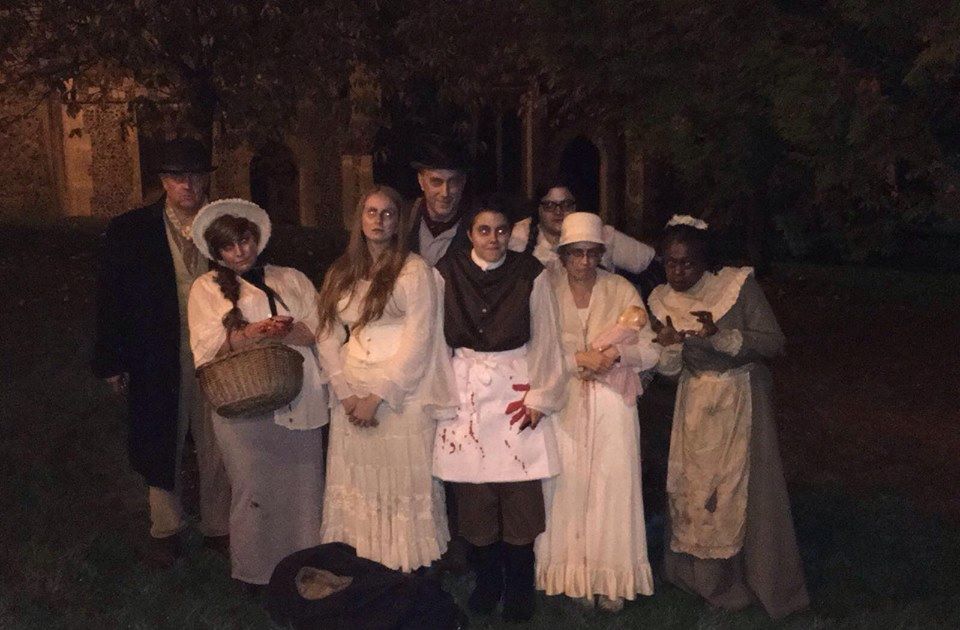
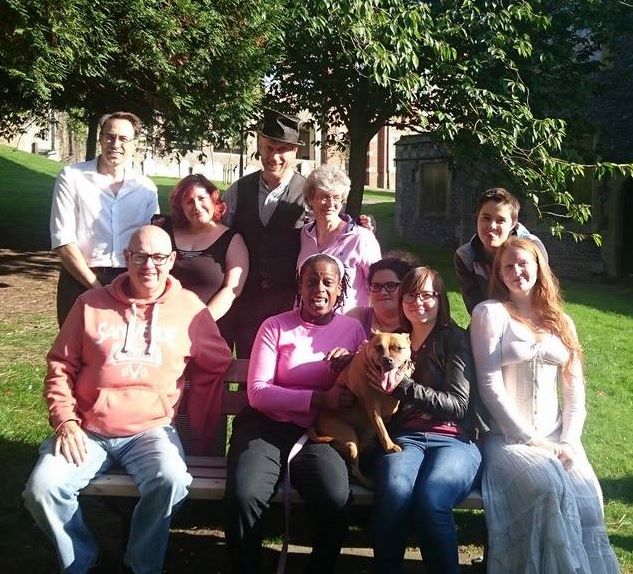
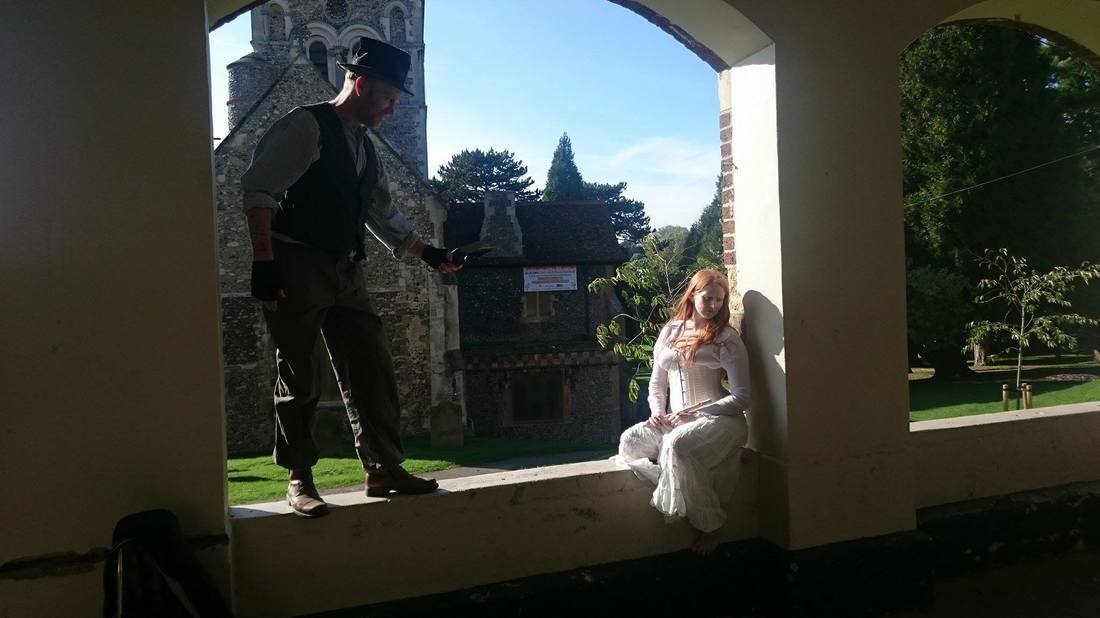
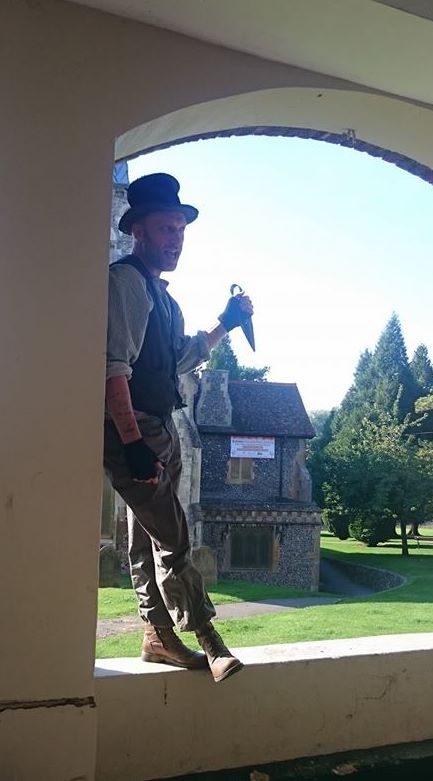
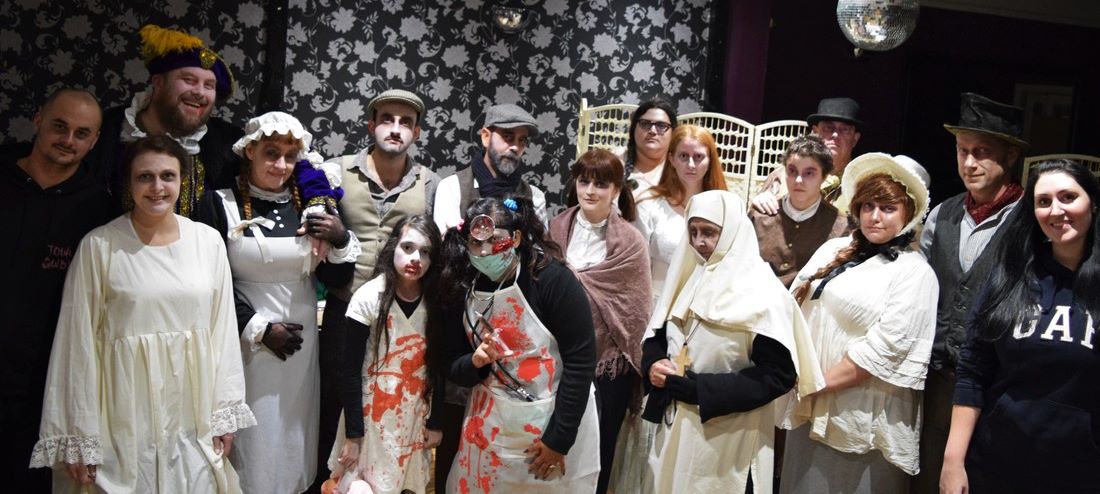
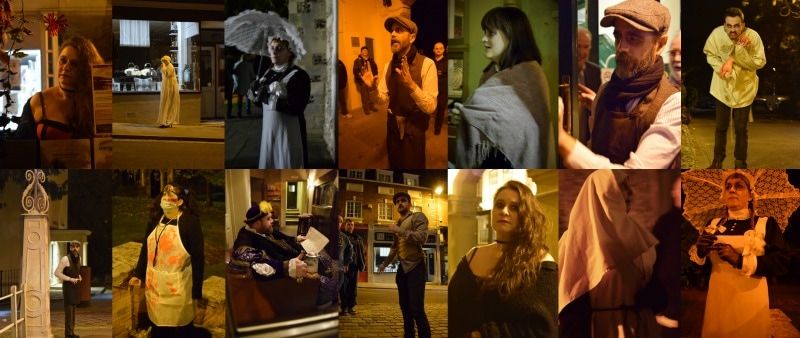
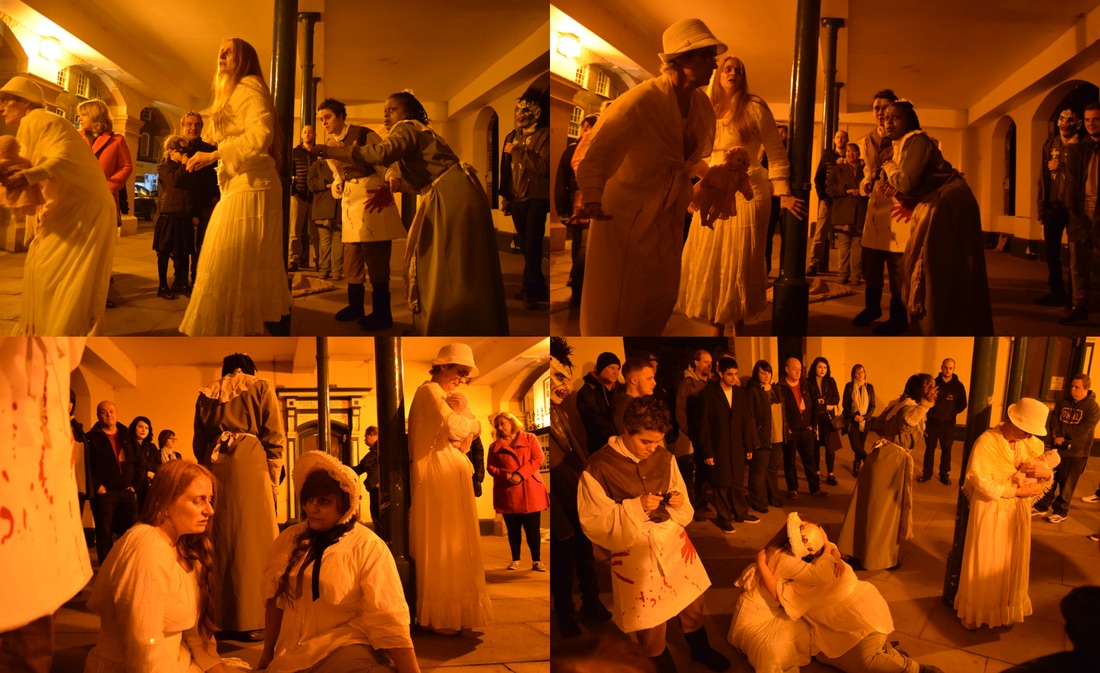

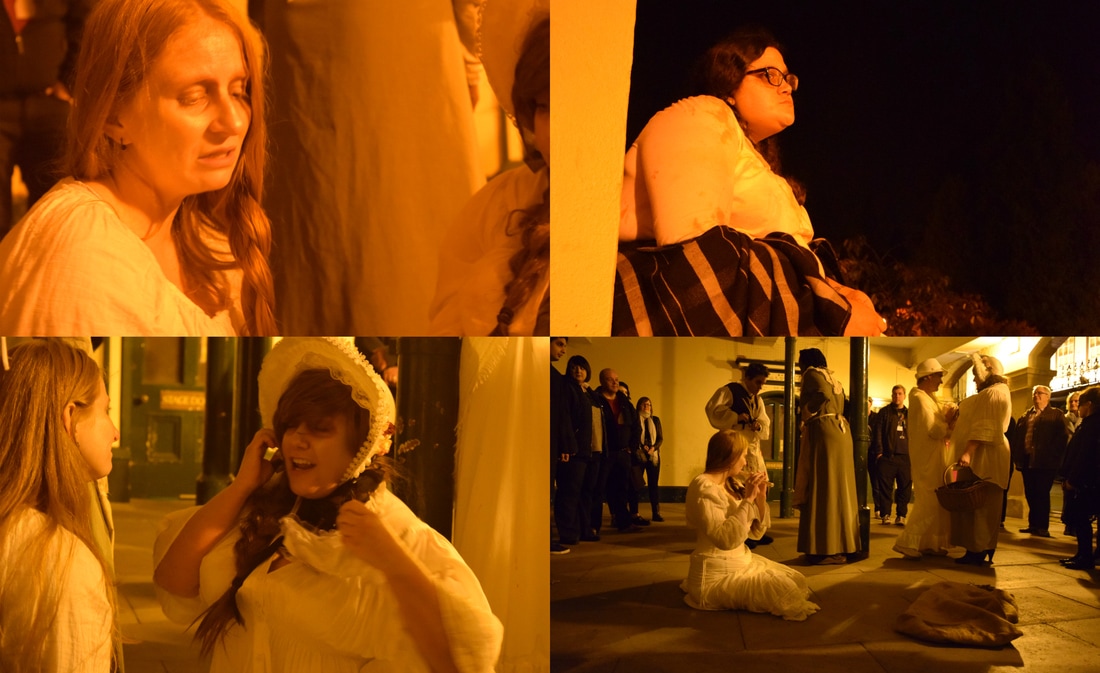

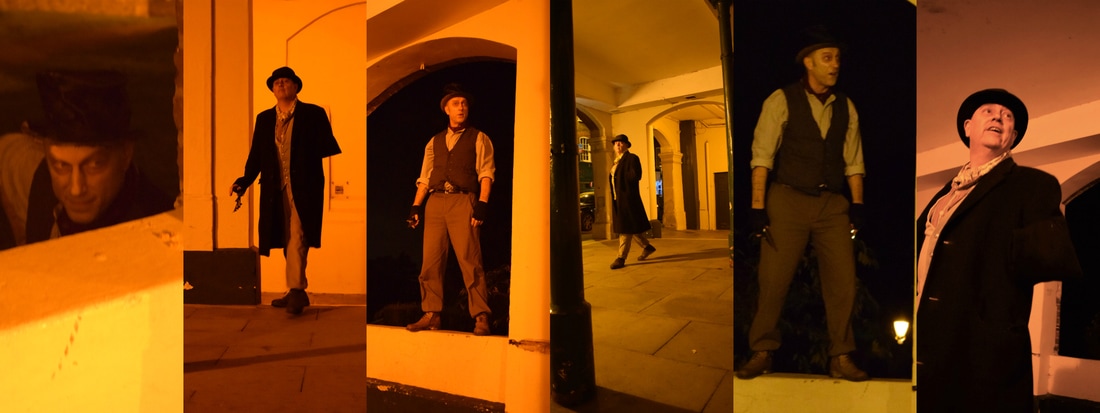

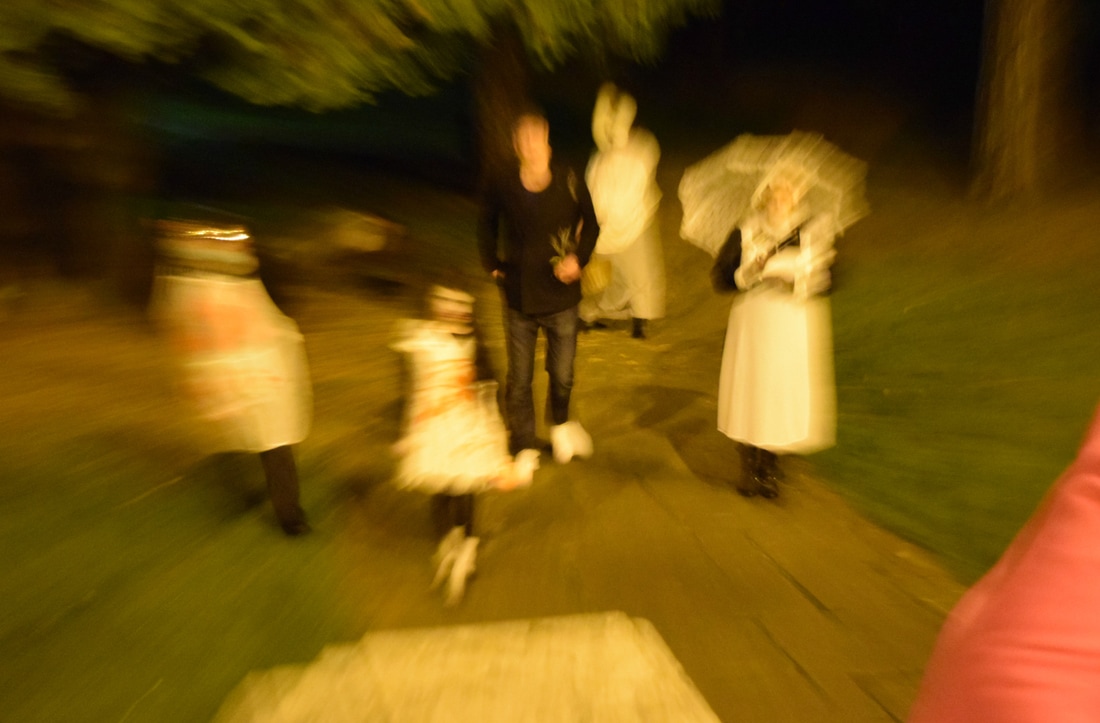
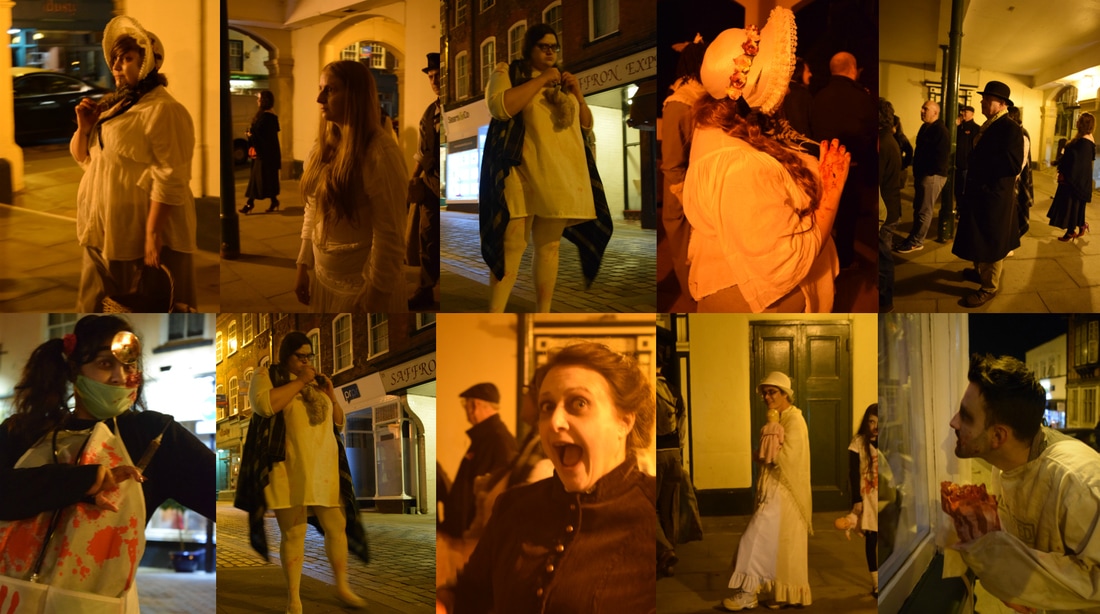
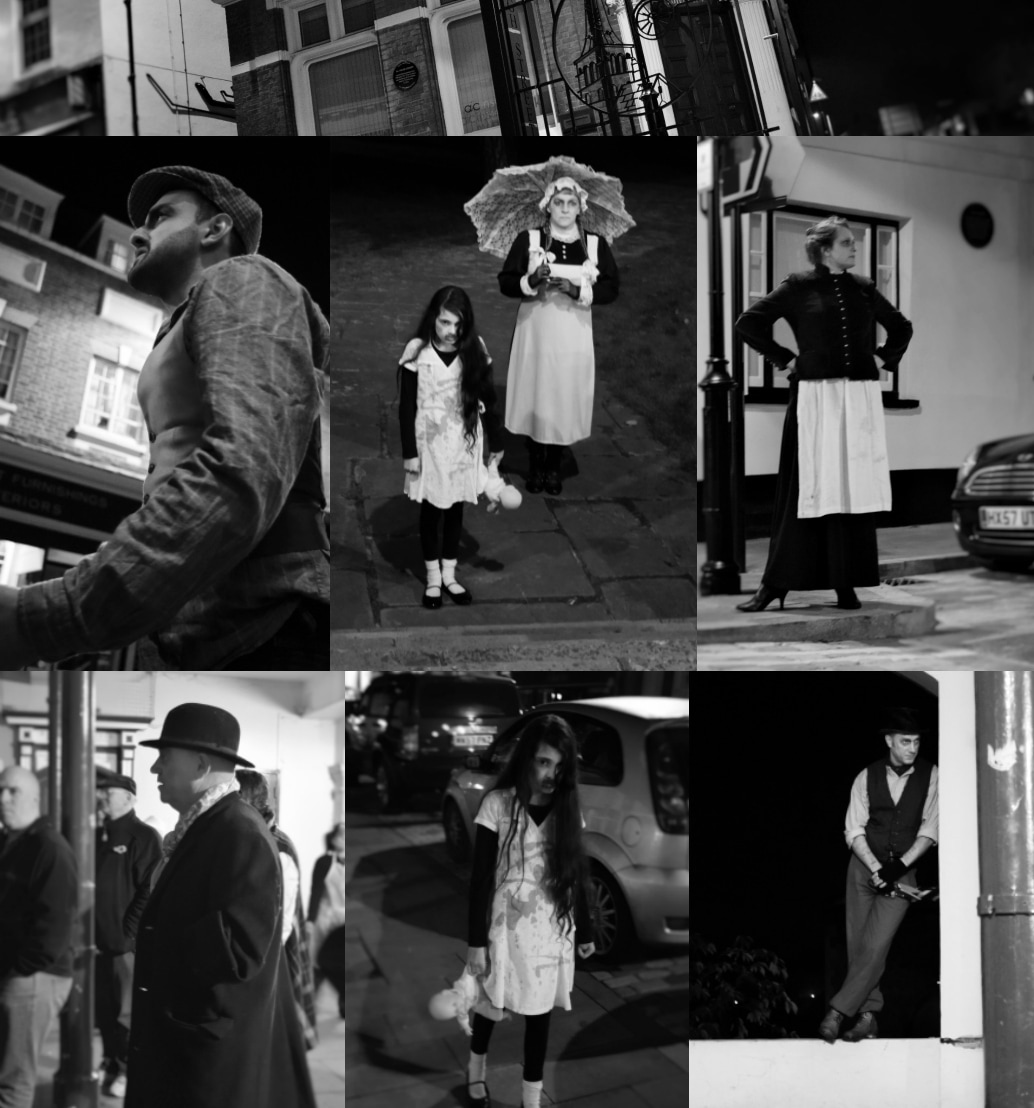
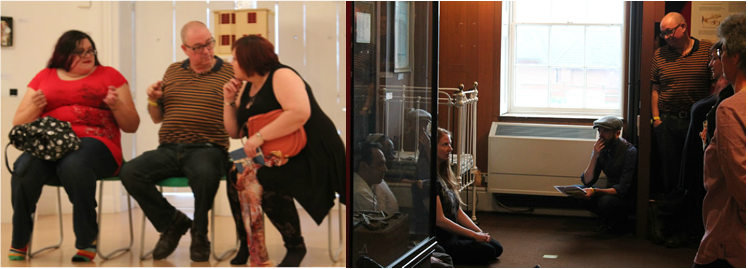
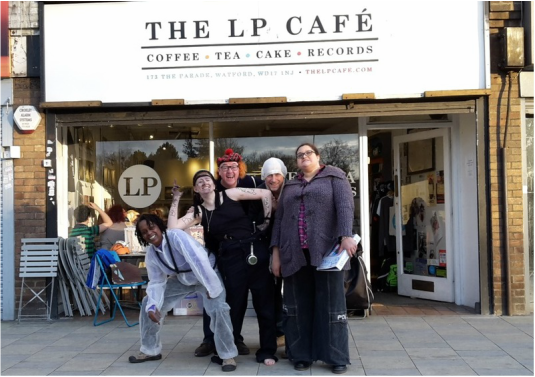
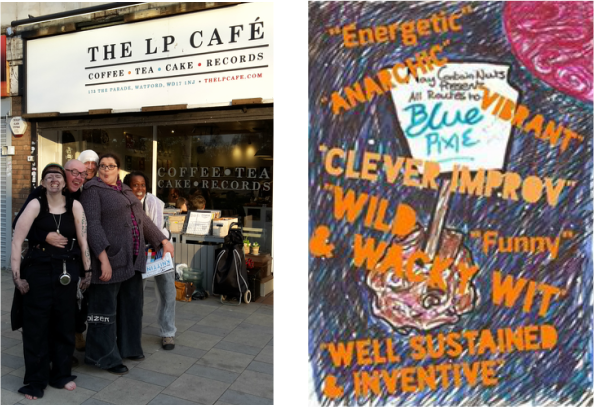
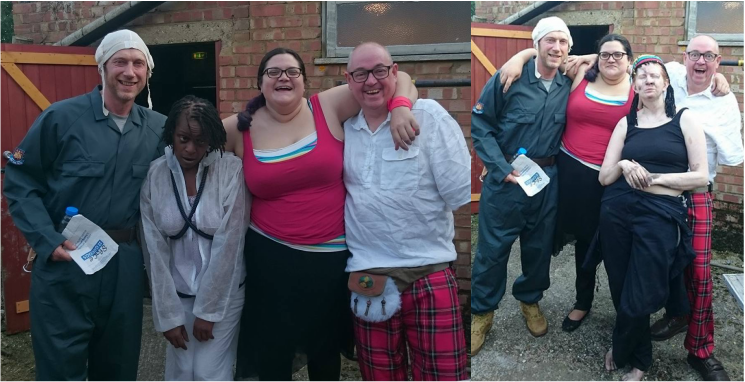
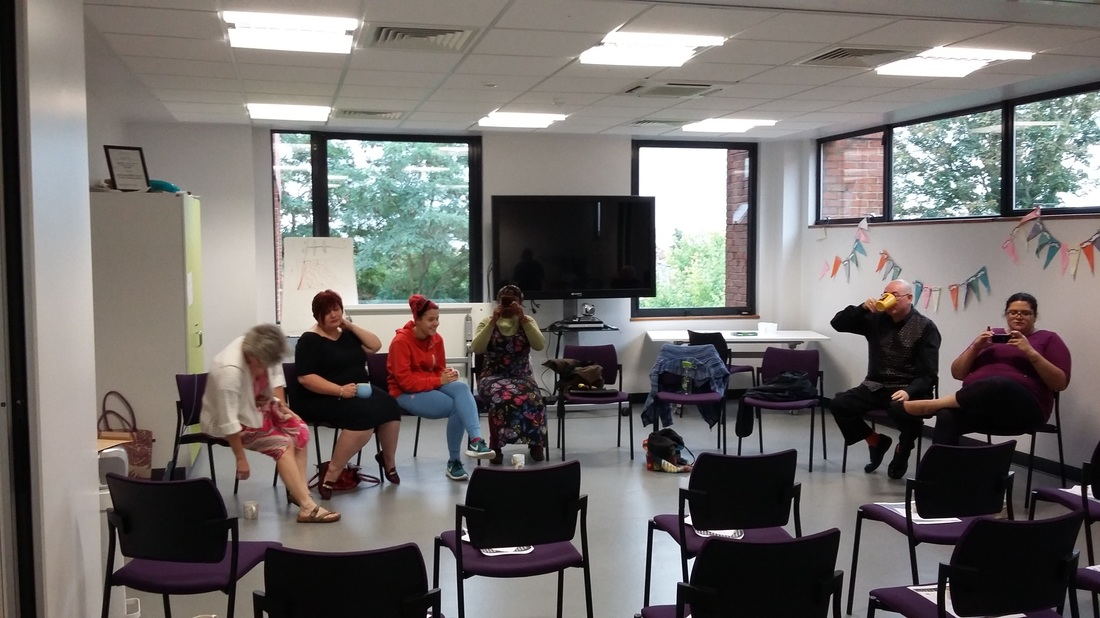
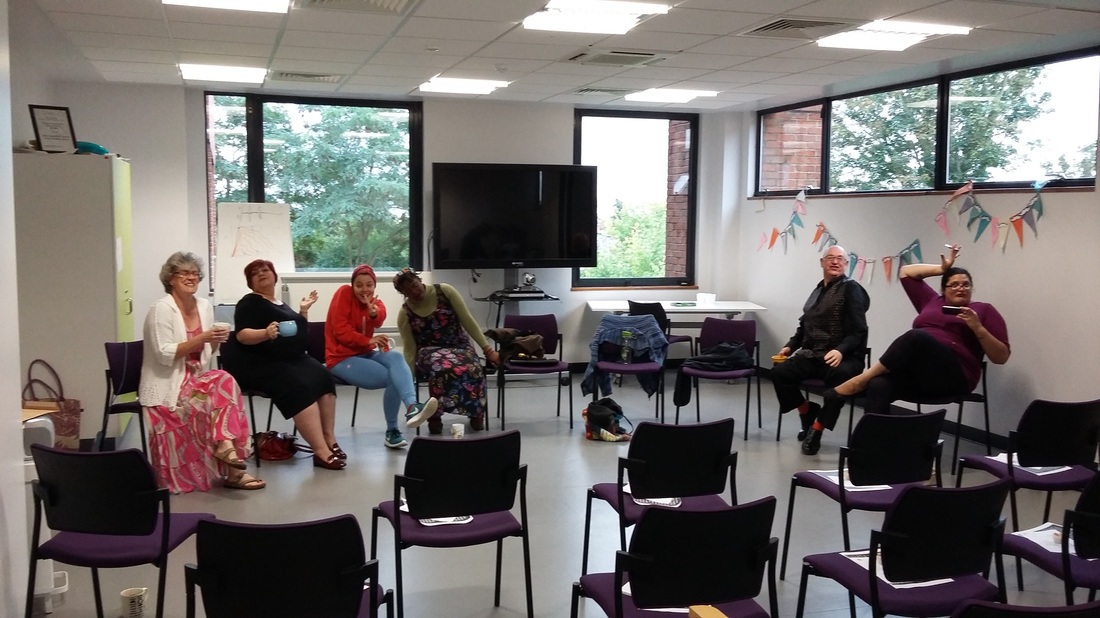
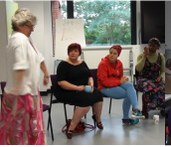

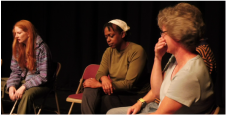
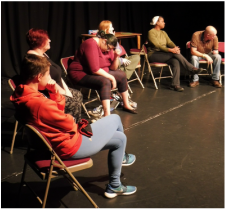
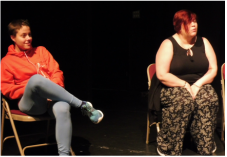
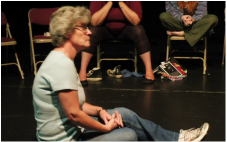
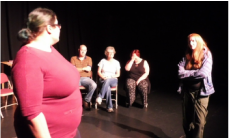

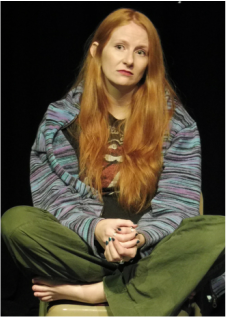
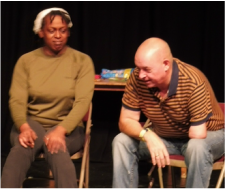
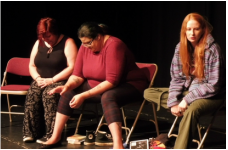
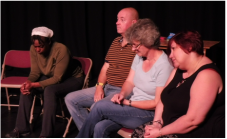
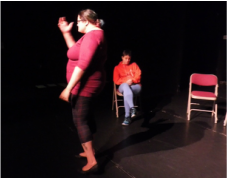
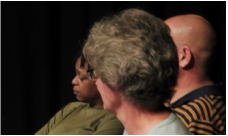
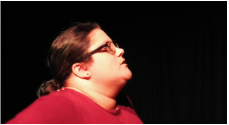
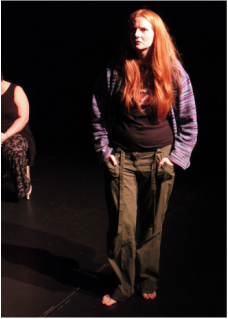
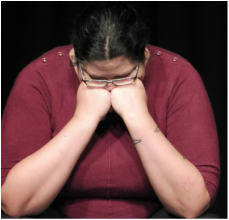
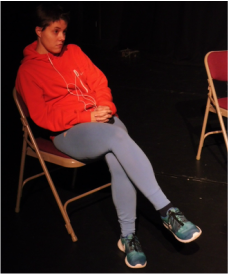
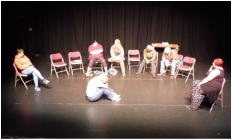
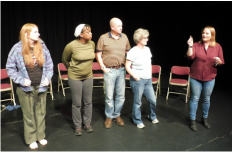
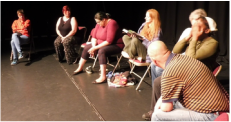
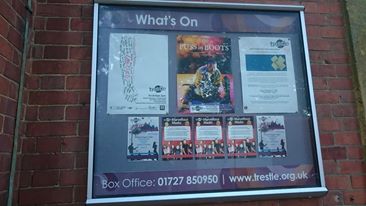
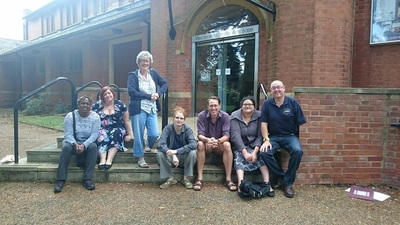
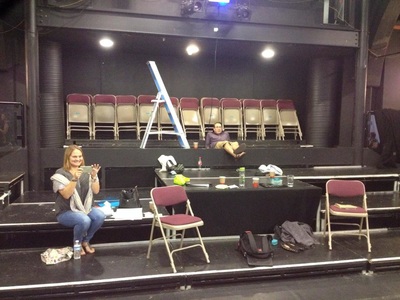
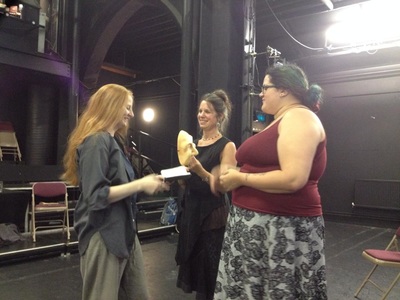
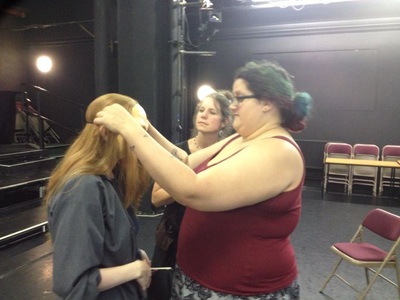
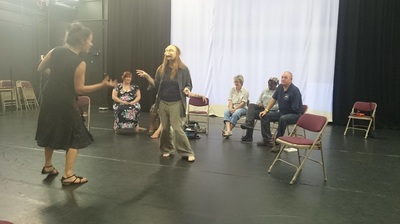
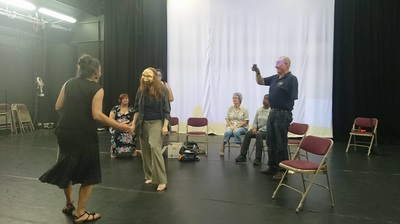
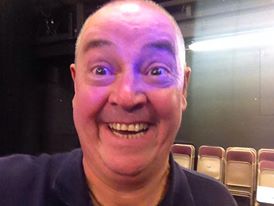
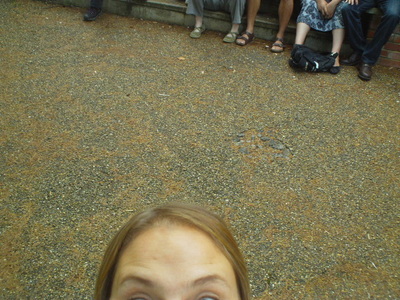
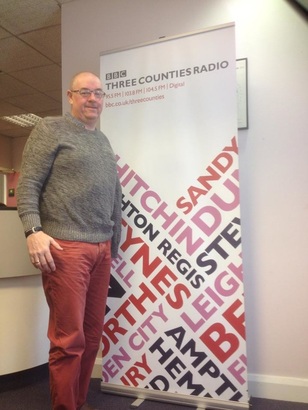
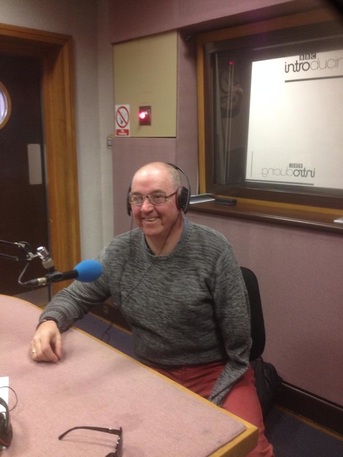
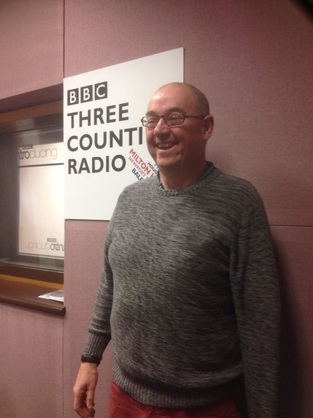
 RSS Feed
RSS Feed






